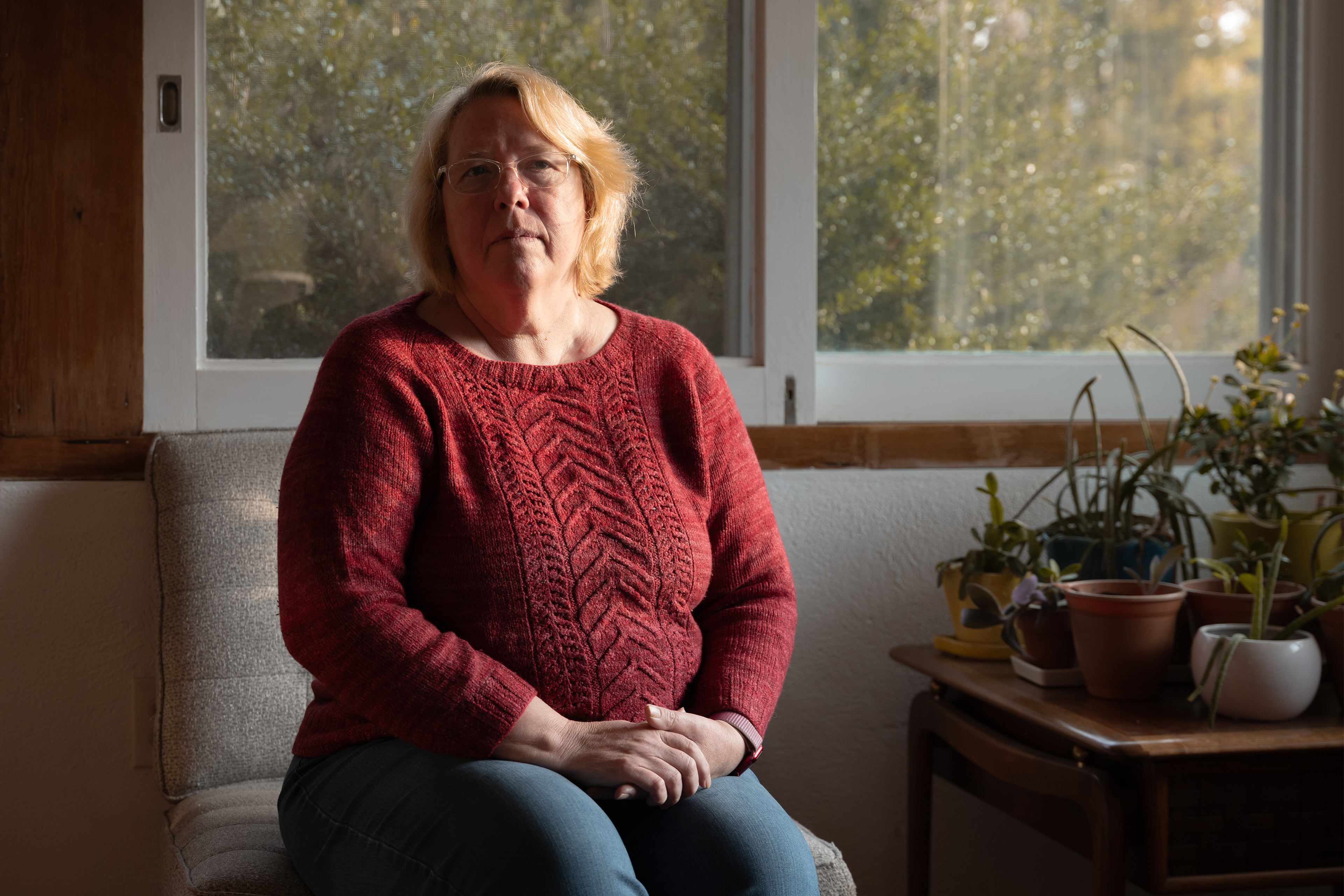Countless readers responded to the short articles in the “ Passing Away Broke” series about the monetary concern of long-lasting care in the United States. They provided their evaluations for the federal government and market failures that have actually drained pipes the life time cost savings of a lot of American households. And some provided possible services.
In more than 4,200 remarks, readers shared their battles in looking after partners, older moms and dads, and grandparents. They revealed stress and anxieties about growing older themselves and requiring aid to remain at home or in organizations like retirement home or helped living centers.
Numerous recommended modifications to U.S. policy, like broadening the federal government’s payments for care and permitting more immigrants to remain in the nation to assist fulfill the need for employees. Some even stated they would rather end their lives than end up being a monetary concern to their kids.
Numerous readers blamed the mainly for-profit nature of American medication and the long-lasting care market for diminishing the funds of older individuals, leaving the federal-state Medicaid programs to look after them when they were destitute.
” It is inaccurate to state the cash isn’t there to spend for senior care,” Jim Castrone, 72, a retired monetary controller in Placitas, New Mexico, commented. “It exists, in the type of revenues that accumulate to the owners of these centers.”
” It is a system of wealth transfer from the middle class and the bad to the owners of for-profit treatment, consisting of health centers and the long-lasting care centers described in this post, financed by the federal government,” he included.
Other readers indicated insurance plan that, regardless of restrictions, had actually assisted them spend for services. And some communicated their issues that Americans were not conserving enough and were unprepared to look after themselves as they aged.
What Other Countries Offer
Other nations’ treatment of their older residents was consistently pointed out. Readers contrasted the care they observed older individuals getting in foreign nations with the treatment in the United States, which invests less on long-lasting care as a part of its gdp than do most rich countries.
Marsha Moyer, 75, a retired mentor assistant in Memphis, Tennessee, stated she invested 12 years as a caretaker for her moms and dads in San Diego County and an extra 6 for her spouse. While they had benefits lots of do not, Moyer stated, “it was a long, lonesome task, an unfortunate task, an uphill climb.”
By contrast, her sister-in-law’s mom lived to 103 in a “totally moneyed, beautiful senior care home” in Denmark throughout her last 5 years. “My sister-in-law didn’t need to pick in between her own life, her profession, and assisting her healthy however older mom,” Moyer stated. “She might have both. I needed to pick.”

Birgit Rosenberg, 58, a software application designer in Southampton, Pennsylvania, stated her mom had end-stage dementia and had actually remained in a retirement home in Germany for more than 2 years. “The expense for her definitely outstanding care in a joyful, tidy center is her pittance of Social Security, about $180 a month,” she stated “A pal just recently needed to put her mom into a retirement home here in the U.S. Two times, when checking out, she has actually discovered her mom on the flooring in her space, where she had actually been for who understands the length of time.”
Brad and Carol Burns moved from Fort Worth, Texas, in 2019 to Chapala, Jalisco, in Mexico, discarding their $650-a-month long-lasting care policy since care is a lot more cost effective south of the border. Brad, 63, a retired pharmaceutical scientist, stated his mom lived simply a couple of miles away in a memory care center that costs $2,050 a month, which she can pay for with her Social Security payments and an annuity. She is getting “incredible” care, he stated
” As a tip, many people in Mexico can not pay for the care we discover cost effective which makes me unfortunate,” he stated. “However their look after us is incredible, all healthcare, here, really. At her home, they resolve her as Mommy or Barbarita, little Barbara.”
Insurance Plan Disputed
Numerous, lots of readers stated they might connect to issues with long-lasting care insurance plan, and their skyrocketing expenses. Some who hold such policies stated they supplied convenience for a possible worst-case circumstance while others castigated insurance companies for making it hard to gain access to advantages.
” They truly make you work for the cash, and you ‘d much better have somebody offered who can call them and deal with the unlimited and ever-changing documentation,” stated Janet Blanding, 62, a technical author in Fancy Space, Virginia.
Derek Sippel, 47, a signed up nurse in Naples, Florida, mentioned the $11,000 month-to-month expense of his mom’s assisted living home look after dementia as the factor he purchased a policy. He pays about $195 a month with a life time advantage of $350,000. “I might never ever require to utilize the advantage[s], however it makes me feel much better understanding that I have it if I require it,” he stated in his remark. He stated he might not make that sort of cash by spending for his own.
” It’s the threat you take with any sort of insurance coverage,” he stated. “I do not wish to be a problem on anybody.”
Pleas for More Immigrant Employees
One option that readers proposed was to increase the variety of immigrants permitted into the nation to assist attend to the persistent scarcity of long-lasting care employees. Larry Cretan, 73, a retired bank executive in Woodside, California, stated that with time, his moms and dads had 6 caretakers who were immigrants. “There is no magic bullet,” he stated, “however one apparent action– hi, individuals– we require more immigrants! Who do you believe does the majority of this work?”
Victoria Raab, 67, a retired copy editor in New york city, stated that lots of older Americans need to utilize paid aid since their grown kids live far. Her moms and dads and a few of their peers count on immigrants from the Philippines and Eritrea, she stated, “working loosely within the margins of labor policies.”
” These excellent populations need to have the ability to fill caretaker functions transparently in exchange for citizenship since they are an apparent and indispensable possession to a hard occupation that does not have American employees of their ability and favorable cultural mindsets towards the senior,” Raab stated.
Federal Fixes Sought
Other readers required the federal government to develop a thorough, nationwide long-lasting care system, as some other nations have. In the United States, federal and state programs that fund long-lasting care are generally offered just to the really bad. For middle-class households, continual aids for home care, for instance, are relatively nonexistent.
” I am a geriatric nurse professional in New york city and have actually seen this story time and time once again,” Sarah Romanelli, 31, stated “My clients are stunned when we examine the choices and its expenses. Medicaid can’t be the only choice to spend for long-lasting care. Congress requires to act to develop a much better system for middle-class Americans to fund long-lasting care.”

John Reeder, 76, a retired federal economic expert in Arlington, Virginia, required a federal single-payer system “from birth to senior care in which all of us pay and profit-making [is] eliminated.”
Other readers, nevertheless, argued that individuals required to take more duty by getting ready for the expenditure of old age.
Mark Dennen, 69, in West Harwich, Massachusetts, stated individuals need to conserve more instead of anticipate taxpayers to bail them out. “For a lot of, the response is, ‘How can we conceal possessions and make the federal government pay?’ That is simply another method of stating, ‘How can I make someone else pay my costs?'” he stated, including, “We do not require the current phone/car/clothes, however we will require long-lasting care. Options.”
Questioning the Worth of Life-Prolonging Treatments
A variety of readers condemned the nation’s medical culture for pressing costly surgical treatments and other treatments that do little to enhance the quality of individuals’s couple of staying years.
Thomas Thuene, 60, an expert in Boston’s Roslindale community, explained how a pal’s mom who had cardiac arrest was consistently sent out from the senior care center where she lived to the health center and back, by means of ambulance. “There was no arguing with the care center,” he stated. “Nevertheless, the minute all her cash was gone, the center carefully pushed my pal to consider end-of-life look after his mom. It appears the monetary destroy is baked into the system.”
Joan Chambers, 69, an architectural draftsperson in Southold, New York City, stated that throughout a hospitalization on a heart system she observed lots of fellow clients “bedridden with empty eyes,” waiting for implants of stents and pacemakers.
” I understood then and there that we are not clients, we are products,” she stated. “The majority of us will pass away from cardiac arrest. It will take nerve for a relative to decline a ‘easy’ treatment that will keep an enjoyed one’s heart pounding for a couple of more years, however we need to stop this ruthlessness.
” We need to keep in mind that despite the fact that we are grateful to our healthcare experts, they are not our good friends. They are our staff members and we can state no.”
One doctor, James Sullivan, 64, in Cataumet, an area of Bourne, Massachusetts, stated he prepared to decline hospitalization and other amazing steps if he struggled with dementia. “We invest billions of dollars, and a great deal of distress, dealing with berserk individuals for pneumonia, urinary system infections, cancers, things that are going to eliminate them eventually, for no significant advantage,” Sullivan stated. “I would not desire my boy to invest his excellent years, and cash, assisting to preserve me alive if I do not even understand what’s going on,” he stated.
Thinking About ‘Helped Passing Away’
Others went even more, stating they would rather schedule their own deaths than suffer in significantly lessened capability. “My long-lasting care strategy is easy,” stated Karen Clodfelter, 54, a library assistant in St. Louis. “When the cash goes out, I will take myself out of the image.” Clodfelter stated she assisted look after her mom till her death at 101. “I have actually seen severe aging,” she stated, “and I’m not thinking about going there.”
Some recommended that clinically helped death needs to be a more extensively offered choice in a nation that takes such bad care of its senior. Meridee Wendell, 76, of Sunnyvale, California, stated: “If we can’t handle to supply assisted living to our fellow Americans, could we a minimum of deal helped passing away? A minimum of a few of us would see it as a preferable option.”